Have you ever stopped to think about what chemicals are in the products you use to clean your retainer? The inconvenient truth about retainer cleaning tablets is that many contain hidden toxic ingredients which may cause more harm than good. While these tablets promise sparkling cleanliness and odor removal, ingredients like sls and persulfates can lead to irritation, allergic reactions, and other health concerns. Understanding these substances is essential to protecting both your oral health and overall well-being. In this article, we'll uncover the toxic components commonly found in retainer cleaning tablets and what you should be aware of to keep your dental appliances safe.
The inconvenient truth about retainer cleaning tablets: Unmasking harmful ingredients
What’s inside your retainer cleaner?
Retainer cleaning tablets appear harmless and convenient, but their ingredient lists often conceal chemicals that could be harmful to sensitive tissues in your mouth. Two of the most concerning substances found in these tablets are sodium lauryl sulfate (sls) and persulfates. Both have powerful cleaning properties but come with risks.
Why are sls and persulfates commonly used?
Sls is widely used as a foaming agent in many cleaning products, including oral care items. It helps to remove debris and plaque by breaking down oils and surface buildup. Persulfates, on the other hand, serve as oxidizing agents that create a fizzing action which lifts stains and disinfects.
While effective for cleaning, these compounds are potent chemicals that can cause unintended side effects.
Understanding sls: More than just a detergent
What is sodium lauryl sulfate?
Sodium lauryl sulfate is a synthetic detergent known for producing foam and removing oils. Although it's common in toothpaste and cleansers, sls is also a known irritant. It can strip away natural oils and protective barriers from soft tissues inside the mouth, including gums, cheeks, and the tongue.
Risks of sls exposure for retainer wearers
When retainer cleaning tablets contain sls, residue may remain on the appliance, coming into prolonged contact with your oral mucosa. This can contribute to:
- Dryness and irritation of the mouth lining
- Increased risk of canker sores or ulcers
- Allergic reactions or sensitivity
For individuals prone to mouth sores or sensitive tissues, sls in retainer cleaners can exacerbate discomfort or delay healing.
Persulfates: Powerful cleaners with hidden dangers
What role do persulfates play in cleaning tablets?
Persulfates are strong oxidizers responsible for the vigorous fizzing action in many retainer cleaners. This action effectively removes stains, bacteria, and biofilms that accumulate on retainers. However, their chemical strength is a double-edged sword.
Health concerns linked to persulfates
Exposure to persulfates, even in small amounts, can result in:
- Allergic reactions such as rashes, itching, or swelling
- Irritation of gums and other soft tissues
- Respiratory issues if inhaled as dust or fumes
In rare but severe cases, persulfate poisoning can occur if the tablets are ingested, a dangerous risk especially in households with children.
Common side effects of toxic retainer cleaning ingredients
Identifying oral irritation symptoms
Repeated exposure to ingredients like sls and persulfates can lead to a range of discomforts, including:
- Red, inflamed gums or oral mucosa
- Burning sensation or soreness inside the mouth
- Mouth ulcers or canker sores that linger or worsen
- Unpleasant taste or dryness after cleaning
Potential long-term consequences
If left unmanaged, irritation caused by toxic cleaning agents can undermine oral health by disrupting the natural balance of your mouth. This may increase susceptibility to infections or prolong healing times for any oral injuries.
How to safely clean your retainer without harmful chemicals
Best practices to minimize exposure
- Rinse retainers thoroughly after soaking to remove residual chemicals.
- Use retainer cleaners that explicitly label themselves as free from sls and persulfates.
- Follow the manufacturer’s instructions carefully, particularly regarding soaking duration.
What to look for when choosing a retainer cleaning product
Ingredients to avoid
Be vigilant about identifying harmful substances on product labels. Avoid retainer cleaning tablets that contain:
- Sodium lauryl sulfate (sls)
- Persulfates (ammonium persulfate, potassium persulfate, sodium persulfate)
- Artificial dyes and strong fragrances that may cause sensitivity
Selecting safer, effective products
Opt for cleaners specifically designed for sensitive mouths, with ingredients like:
- Natural enzymatic cleaners
- Mild detergents derived from plants
- Non-toxic, fragrance-free formulas
Reading user reviews and consulting your dentist can also help identify trustworthy cleaning options that protect your oral health.
Consult your dental professional for personalized advice
Professional insight on retainer maintenance
Your dentist or orthodontist is the best resource to guide you in choosing appropriate cleaning products. They can recommend brands or homemade solutions that avoid toxic chemicals yet maintain hygiene.
Monitoring oral health during retainer use
If you notice persistent soreness, mouth irritation, or allergic symptoms after cleaning your retainer, seek dental advice promptly. Early intervention can prevent complications and keep your retainer use comfortable and safe.
In conclusion, The inconvenient truth about retainer cleaning tablets is that many widely used products contain toxic ingredients like sls and persulfates, which can cause irritation, allergic reactions, and more serious health issues. By understanding what’s inside these tablets and opting for safer alternatives, you can protect your oral health without compromising cleanliness. Always rinse your retainer thoroughly and consider natural cleaning methods or persulfate- and sls-free products for a gentler approach. To ensure safe care tailored to your needs, consult your dental professional and stay informed on the best practices. Learn more about protecting your smile and explore healthier retainer cleaning options today.
List of dental cleaning tablets with SLS and/or Persulfates
| Brand/Product Name | Contains SLS? | Contains Persulfates? | Key Notes/Source |
|---|---|---|---|
| Retainer Brite Cleaning Tablets | Yes (Sodium Lauryl Sulfoacetate, a related sulfate) | Yes (Potassium Persulfate Compound) | Popular for Invisalign; confirmed in official ingredient list; known allergen risk. |
| Efferdent Retainer Cleaning Tablets | No | Yes (Persulfates, unspecified type) | Widely available; FDA warnings on allergic reactions; used for dentures and retainers. |
| Polident Retainer/Denture Tablets | No | Yes (Persulfates, e.g., Sodium or Potassium Persulfate) | Common denture alternative for retainers; linked to irritation and poisoning risks. |
| PUL Fizz Me Cleaning Tablets | Yes (Sodium Lauryl Sulfate) | Yes (Potassium Peroxymonosulfate) | Designed for aligners/retainers; mint-flavored effervescent formula. |
| Bitesoft Aligner & Retainer Tablets | Yes (Sodium Lauryl Sulfate) | Yes (Potassium Monopersulfate) | Non-abrasive for clear appliances; includes dyes and flavors. |
| Vive Health Denture Cleaning Tablets | Yes (Sodium Lauryl Sulfate, implied in "Citric Lauryl Sulfate") | Yes (Potassium Peroxymonosulfate) | Versatile for retainers and mouthguards; 90-tablet pack. |
| Breelex Denture/Retainer Tablets | Yes (Sodium Lauryl Sulfate) | Yes (Potassium Peroxymonosulfate) | 120-tablet supply; quick 3-minute clean; FSA/HSA eligible. |
| Zengate Retainer Cleaner Tablets | Yes (Sodium Lauryl Sulfate) | Yes (Potassium Peroxymonosulfate) | Budget option for aligners and guards; peppermint scent. |
| SonicBrite Tablets | No | Yes (Persulfates, unspecified) | Recommended for ultrasonic cleaners; effective but corrosive to metal parts. |
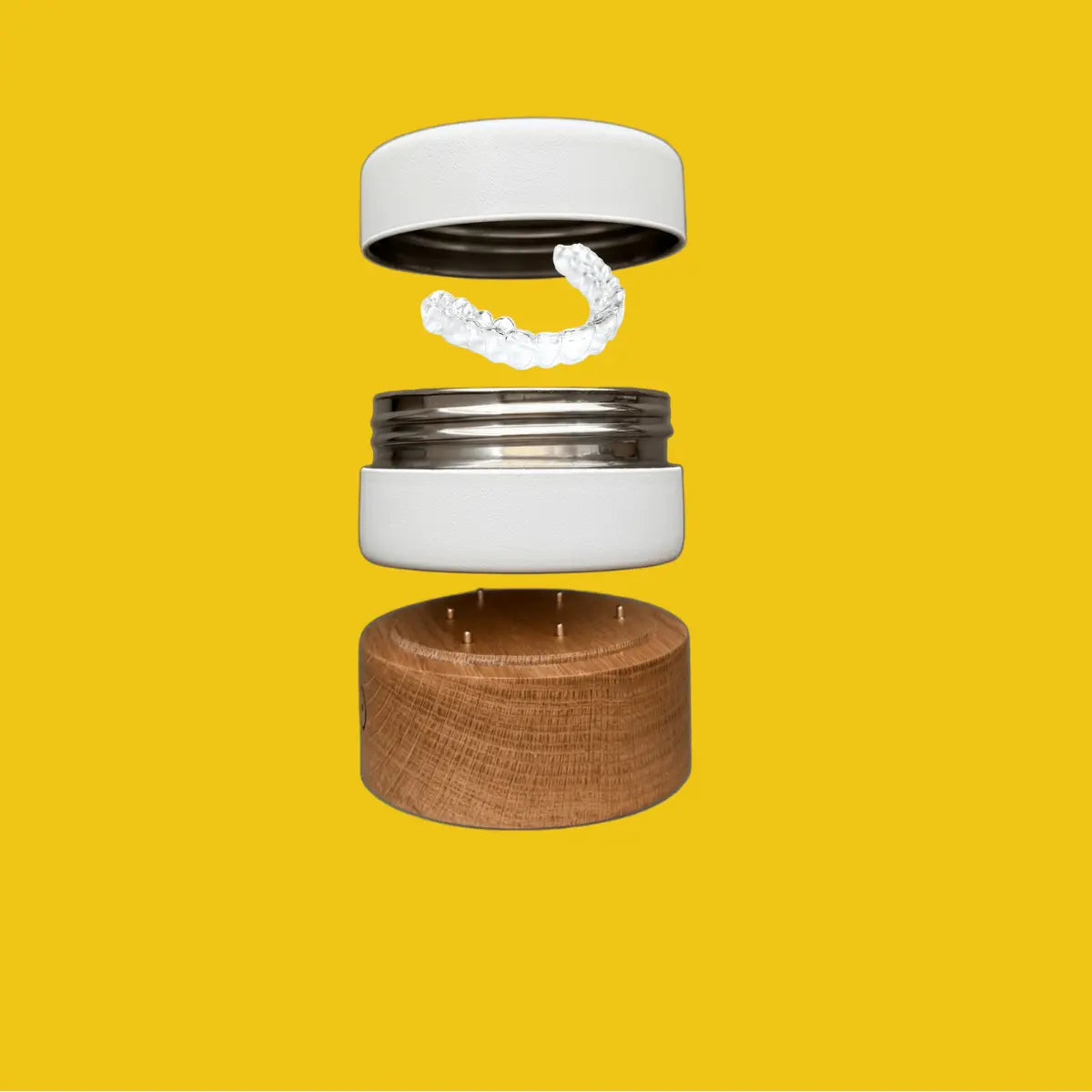
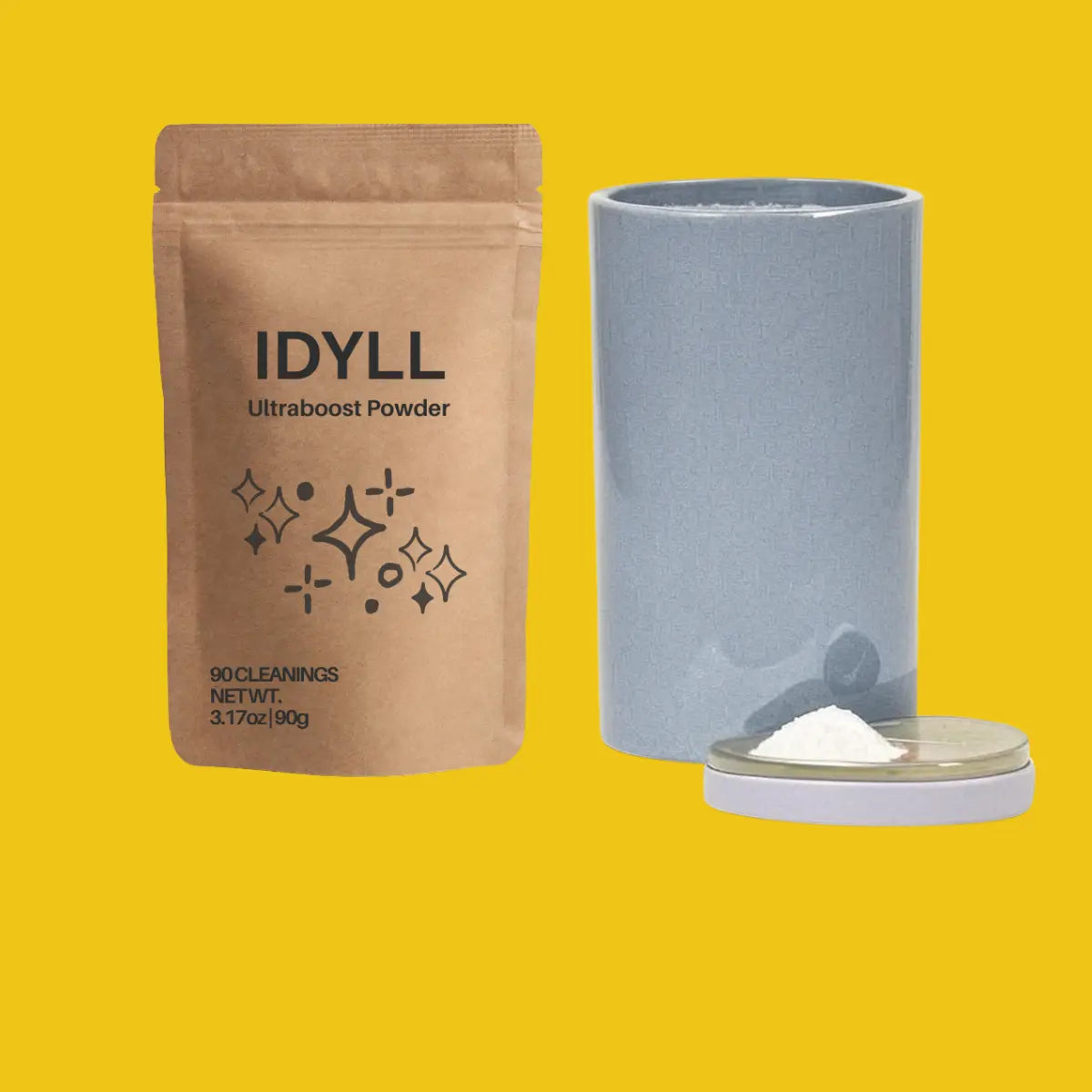

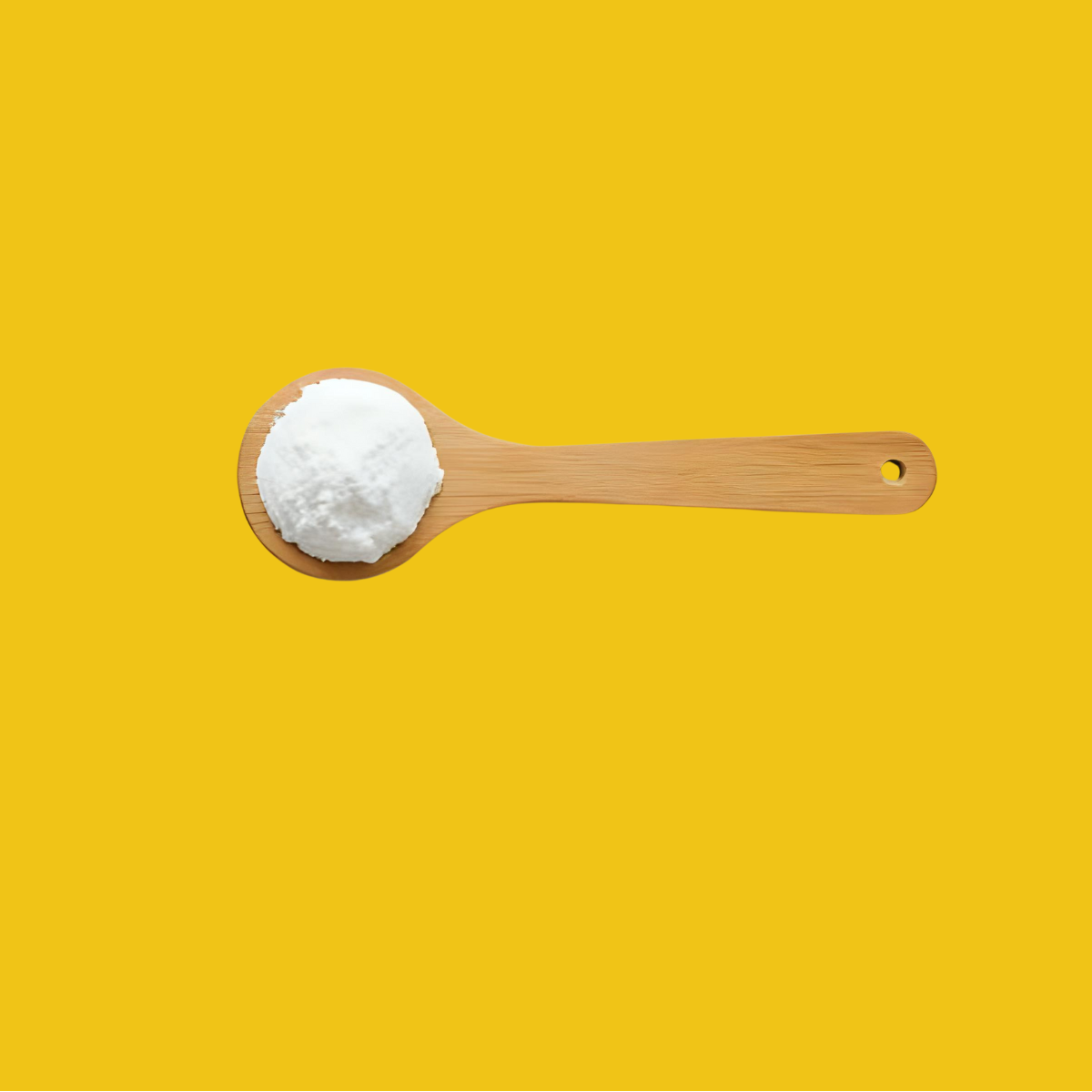
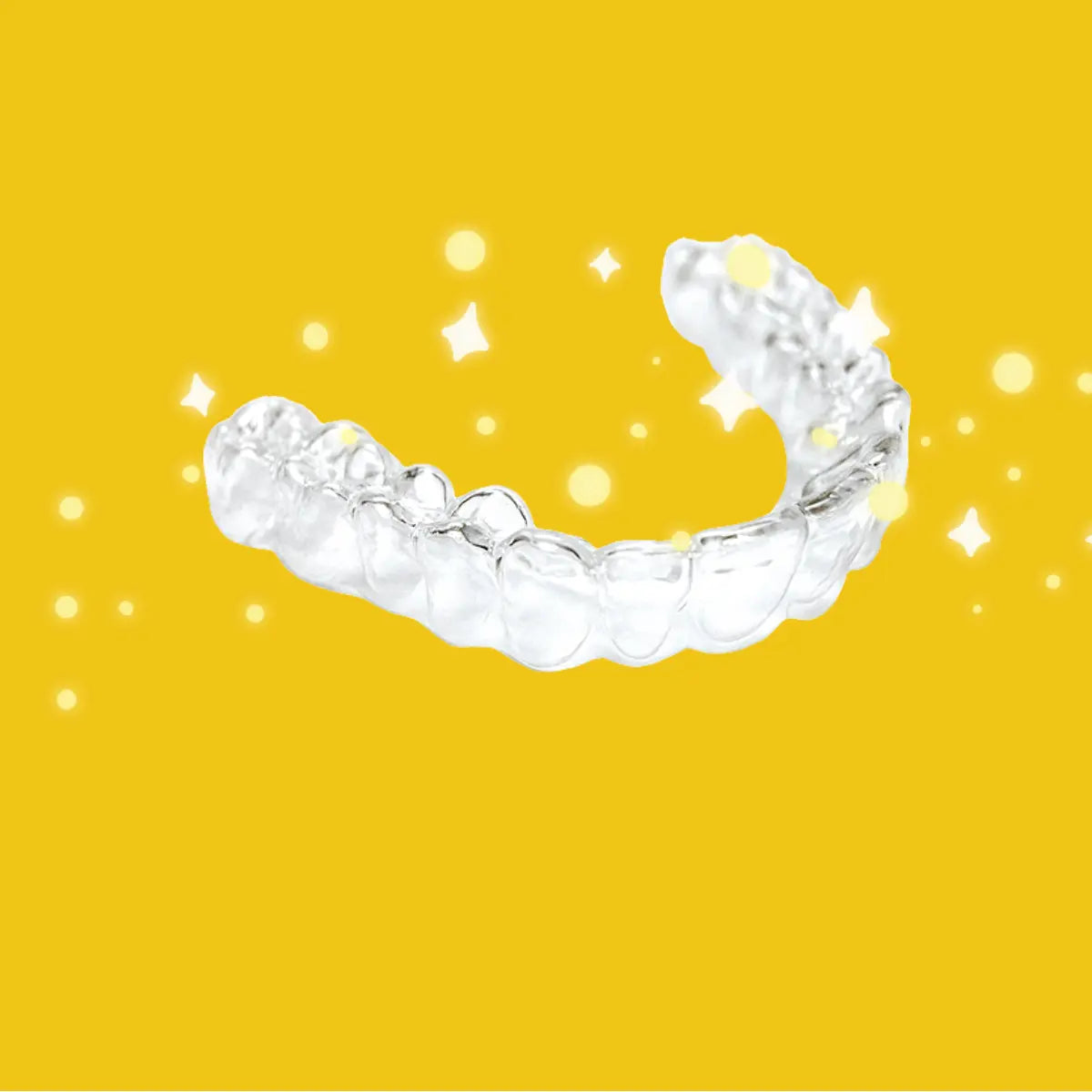
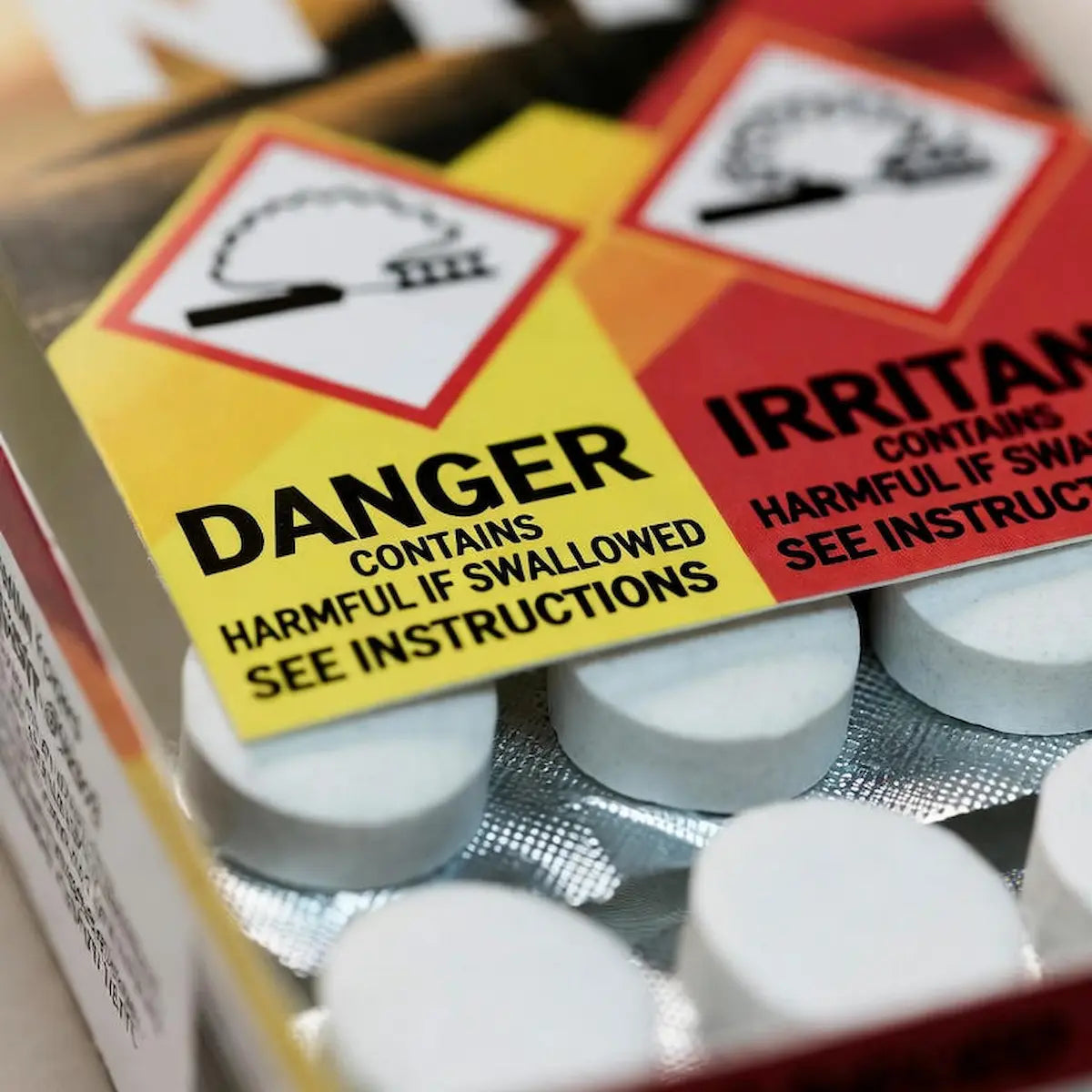
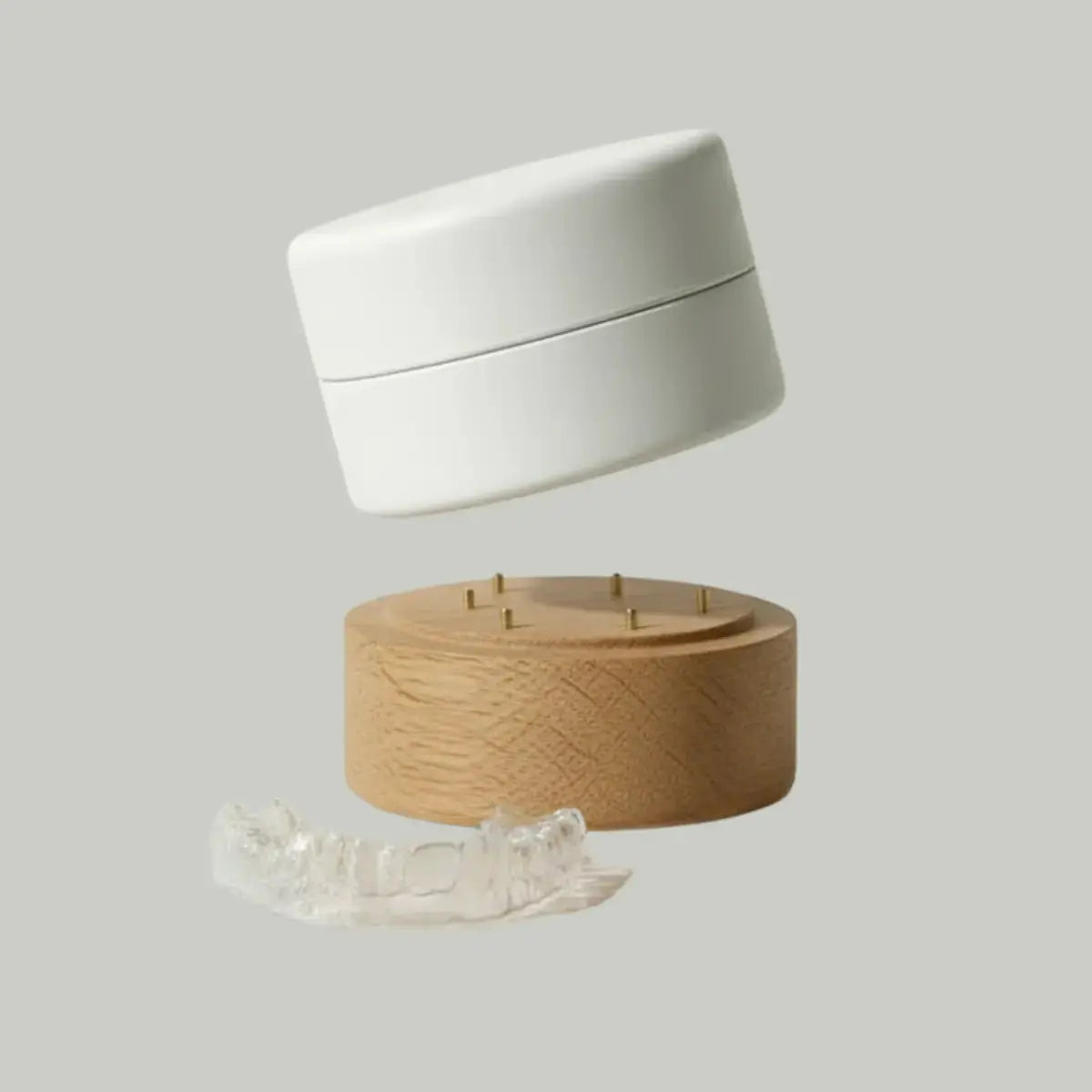
Leave a comment
This site is protected by hCaptcha and the hCaptcha Privacy Policy and Terms of Service apply.